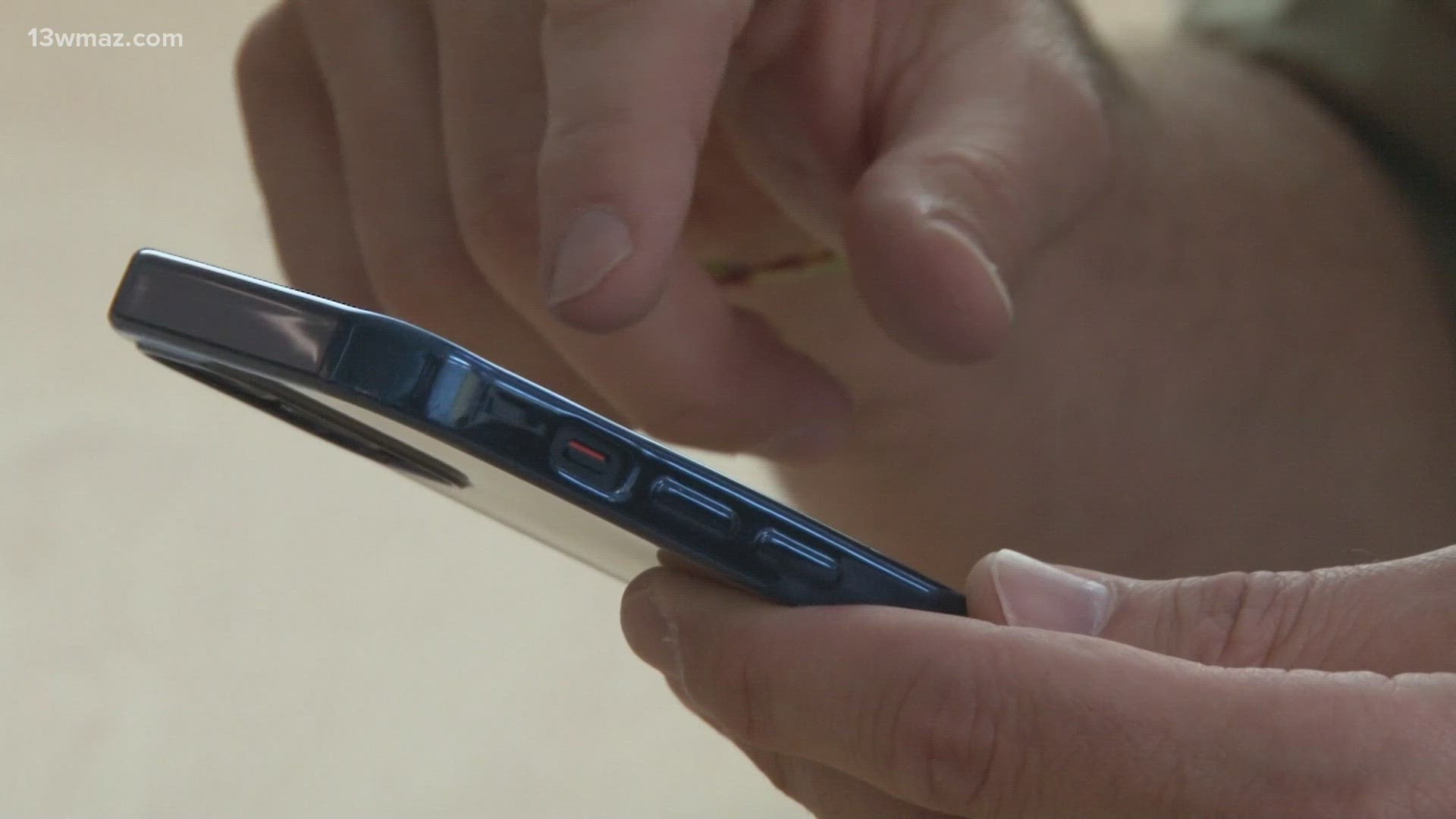PERRY, Ga. — One California scammer might have thought he found a pot of gold in Perry when two seniors agreed to buy $185,000 worth of gold to stop several "fraudulent transactions" on their account.
Instead of leaving town with thousands of dollars in gold, the Stockton, Ca. man allegedly behind the scam, Gurdev Singh, found himself behind bars at the Houston County Detention Center, the Perry Police Department announced in a news release Thursday.
But it all started with a pop-up on the couple's computer, which led to a confusing set of phone calls that the scammer said were with government agencies, big businesses and banking institutions.
In fact, it was just a ploy to steal hundreds of thousands of dollars from the elderly couple, authorities say.
In an incident report, Perry Police Department said that the couple — a 79-year-old man and a 74-year-old woman — were at home when the wife was at the computer and a strange popup appeared on the screen.
They say the popup appeared to show a "Microsoft virus software" on the screen. The popup had a number on it, but it wasn't Microsoft. According to police, the husband called the number for more information.
The person who picked up said that they were from Microsoft and told the couple to call their bank to make sure their accounts were not being hacked.
That's when the scammer pretending to be from "Microsoft" transfers the husband to Bank of America, which is their bank.
Then, the scammers pretending to be Bank of America spoke with the husband, but they would transfer the husband again to a different scammer. This time, they pretended to be with the U.S. Federal Trade Administration.
On that call, the scammer said the agency had stopped "several fraudulent transactions" and the couple "needed to buy gold" to secure their money, the incident report said.
That was not true, but the couple did not know that.
They were referred to JM Bullion, an actual site where you can buy precious metals, and the scammers then told the couple to have the gold shipped to their home. Later, a supposed FTC agent would come and pick up the gold from them and, afterward, the couple would receive a check a few days later with the held-up funds.
They bought in total $185,916.35 worth of gold — equivalent to almost six pounds of gold, according to the current price of gold on the NASDAQ — but the couple would eventually catch wind that they were being scammed. They then reported it to the Perry Police Department on Monday, the incident report read.
The couple attempted to stop the gold delivery and stop the wire transfer to the gold company.
On Thursday, the Perry Police Department announced that they arrested Singh, who was from Stockton, Ca. and a citizen of India, at the end of "a covert operation," the department said in a press release.
Now, they said Singh is charged with a criminal attempt to commit theft by deception and exploitation of elderly persons.
How to avoid getting scammed:
According to the actual FTC, it is very common for scammers to pretend to be organizations that you already know like your bank, your computer company, government agencies or a utility company.
Any organization that you often deal with could be impersonated in a scam.
Oftentimes, scammers use technology to make their phone numbers appear to be the organization's actual phone number. So when you look up the phone number, that number calling you is the actual number of a company or government agency when it is really a trick.
This happened in Bibb County in July when residents were receiving calls that appeared to come from the Bibb County Sheriff's Office.
The calls would tell the resident that they or someone they knew owed the government money, or had a warrant out for their arrest and were at risk of going to jail, according to a warning from the Bibb County Sheriff's Office.
It is often best to call the actual organization or business to confirm if that is actually them.
The FTC also noted that scammers often say that there is a problem with something — like a virus on your computer or money owed to the government — but they can also pretend that you have won money and you need to provide information to them which will allow them access to your funds.
The scammers oftentimes ramp up the pressure for you to act immediately, the FTC said. They can do this by threatening to arrest or sue you. They might also threaten to take away your driver's license or say that your computer is at risk of being corrupted.
This can be a trick to make you look past the red flags and instead act with fear.
Another tell-tale sign of a scam is that the scammers often ask you to provide money through unusual methods.
For instance, they may ask you to send money through cryptocurrency, wire money through MoneyGram or Western Union, putting money on a gift card or through buying gold or other items of value for payment.
Nine times out of ten, that is an obvious sign that it is a scam and you should hang up and check with the actual organization before you take any additional actions.
If you have experienced similar situations, you can call Detective Ike Wilcox with the Perry Police Department at 478-988-2824 or email him at john.wilcox@perry-ga.gov. You can also file a complaint with the FTC at ReportFraud.ftc.gov.

